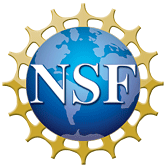 |
Events
|
There are no upcoming events posted. Please check back later. |
Networks
Description
This interdisciplinary research-based community of practice conducts empirical research on bilingualism and second language acquisition. We have a broad range of content expertise and use a wide variety of data collection methods and analytic techniques. Our research and training programs have been supported by the National Institutes of Health, the National Science Foundation, the U.S. Department of Education, and the Department of Homeland Security. We believe that the global and local importance of bilingual communication make it imperative to achieve a better scientific understanding of bilingualism. UTEP, being located in a bilingual, bicultural, and bi-national region, is the ideal location to conduct basic and applied scientific research on bilingualism.
Current activities include developing plans and research proposals for collaborative interdisciplinary research; training in content and methodology for undergraduate students, graduate students, and faculty; and mentoring of junior faculty. Our mission is multifaceted and includes (1) conducting and promoting high-quality scientific research on bilingualism and language acquisition; (2) fostering interdisciplinary collaboration; (3) fostering a better understanding of the factors that impact bilingual language proficiency across the lifespan; (4) fostering better understanding of the cognitive, social, educational, and health implications of bilingualism, biculturalism, and linguistic minority status; (5) providing a broad range of training opportunities for UTEP students and faculty, as well as researchers from other institutions; (6) providing consultation for researchers, educators, or health service providers who work with bilingual populations by design or necessity; (7) leveraging the bilingual skills of UTEP students; (8) fostering a better understanding of the global relevance of bilingualism and biculturalism in the scientific community; and (9) disseminating research results to the scientific community, as well as educators, health service providers, and lay people.
Aspirations
KEYWORDS
- Bilingualism
- Cognition
- Communication Disorders
- English Learners
- Health Disparities
- International
- Language Acquisition
- Learning
- Lifespan Development
- Memory
COMMUNITY MEMBERS
Member
- ‹‹
- 3 of 3
Related Efforts
The Language Acquisition and Bilingualism (LAB) Ph.D. concentration is a new option for students who wish to gain solid training in both psychological and linguistic theory and methodology. The program offers students advanced training in the research methods of psychology, particularly those relevant to the study of language, and in the theory and description of linguistic structure, which will significantly enhance their language-oriented research.
TBA
The Department emphasizes excellence in research, teaching, learning, and service in linguistics, language(s), literatures, and cultures. We endeavor to produce language-related research of nation/international significance in our various areas of interest.
- 1 of 2
- ››
Source: U.S. Department of Education, Office of Special Education Programs
Amount: $1,233,630
Funding period: 2014-2019
Source: National Science Foundation
Amount: $300,000
Funding period: 2016-2019
Source: National Institute of Child Health and Human Development (NICHD)
Amount: $453,000
Funding period: 2014-2017
Several eye trackers, including one for children and one for both fixed and free motion
EEG/ERP equipment (to be purchased in 2017)
Two double-walled sound-attenuating booths, one sound-attenuated room
Functional Near Infrared Spectroscopy (fNIRS) equipment
- 1 of 2
- ››
DIALOG SOURCES
I3 Move Communities provide a way to share expertise, resources, and community information to the general public. There are numerous tools available, both open source and proprietary, for engaging in dialog and sharing information and knowledge within a closed group.
This community engages in dialog as follows:
None specified to date.


